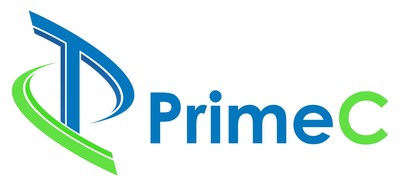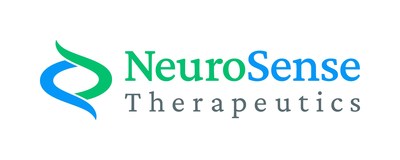NeuroSense Announces Positive PrimeC Toxicology Data Supportive of Current Phase IIb PARADIGM ALS Clinical Trial
NeuroSense Therapeutics announced positive results from its GLP toxicology study for PrimeC, a combination therapy for ALS. The study confirmed PrimeC's safety at doses over four times the maximal clinical dose, supporting the current Phase IIb PARADIGM trial design. This follows encouraging outcomes from a prior Phase IIa study. The PARADIGM trial aims to assess the efficacy and safety of PrimeC in ALS patients, with topline data expected in H1 2023. This milestone enhances the likelihood of favorable clinical outcomes and supports the drug's development strategy.
- PrimeC demonstrated safety and tolerability at doses over 4x the maximal clinical dose.
- Positive results support ongoing Phase IIb PARADIGM trial for ALS.
- Achieved meaningful milestone confirming PrimeC's favorable risk-benefit profile.
- None.
- PrimeC is safe and tolerable at over 4x the maximal clinical dose
- Data support current Phase IIb PARADIGM study design, new PrimeC formulation, and potential favorable clinical trial outcome
CAMBRIDGE, Mass., Sept. 20, 2022 /PRNewswire/ -- NeuroSense Therapeutics Ltd. (Nasdaq: NRSN) ("NeuroSense"), a company developing treatments for severe neurodegenerative diseases, today announced positive results from its Good Laboratory Practices (GLP) toxicology study designed to evaluate the toxicological profile and toxicokinetics of the combination of celecoxib and ciprofloxacin, the components of PrimeC, the Company's lead combination drug candidate for the treatment of amyotrophic lateral sclerosis (ALS). PrimeC is a novel extended-release oral formulation composed of a unique fixed-dose combination of the two drugs, which are U.S. Food and Drug Administration (FDA)-approved. NeuroSense is currently evaluating PrimeC in PARADIGM, a Phase IIb clinical trial.

"In concluding the FDA requirement to carry out a 90-day GLP toxicology study in rodents, we can be reassured that the clinical doses of celecoxib and ciprofloxacin, being used in our novel formulation, are safe and tolerable. We plan to share the data we have obtained with the FDA as part of PrimeC's drug development plan," stated Diana Shtossel, Head of Regulatory Affairs at NeuroSense. "These highly encouraging results support the safety profile we have already seen, as well as the likelihood of a favorable outcome from our ongoing Phase IIb PARADIGM trial."
The GLP study tested the combination of celecoxib and ciprofloxacin, administered by oral gavage to Sprague-Dawley rats twice daily, for a period of 90 consecutive days. The body weights, body weight gains, and food consumption were unaffected by the treatment at all the doses tested. There were no test item-related changes observed in hematology, coagulation, clinical chemistry, urinalysis, organ weights, gross pathology and histopathology, and neurological examinations. Animals treated with celecoxib alone, ciprofloxacin alone, or in combination, up to the highest doses tested did not show any adverse toxicological effects. In conclusion, the No Observed Adverse Effect Level (NOAEL) is over 4x the maximal clinical dose.
"With this toxicology study, we achieved another meaningful milestone in our PrimeC development program. It is very encouraging to see the results of this study confirm the favorable risk-benefit profile of PrimeC seen in the recently published NST002 proof-of-concept study in ALS patients," said Dr. Ferenc Tracik, Chief Medical Officer at NeuroSense.
About PrimeC
PrimeC, NeuroSense's lead drug candidate, a combination therapy for ALS, was granted Orphan Drug Designation by the U.S. Food and Drug Administration (FDA) and the European Medicines Agency (EMA). NeuroSense completed a Phase IIa clinical study which successfully met its safety and efficacy endpoints including reducing functional and respiratory deterioration and statistically significant changes in ALS-related biological markers indicating PrimeC's biological activity. PrimeC's upgraded formulation, which is a unique extended-release tablet, designed to maximize the synergism between the compounds, is now being evaluated in a Phase IIb clinical trial, PARADIGM, for the treatment of ALS.
About PARADIGM
NeuroSense's Phase IIb PARADIGM trial is currently enrolling patients to assess PrimeC's efficacy, as well as safety and tolerability, in people living with ALS. The study is randomizing 69 people living with ALS in a 2:1 ratio to receive PrimeC or placebo, respectively. Primary endpoints of the study include assessment of ALS biomarkers, evaluation of clinical efficacy, improvement in quality of life, as well as safety and tolerability. Topline data are expected H1 2023.
About ALS
Amyotrophic lateral sclerosis (ALS) is an incurable neurodegenerative disease that causes complete paralysis and death within 2-5 years from diagnosis. Every year, more than 5,000 patients are diagnosed with ALS in the U.S. alone, with an annual disease burden of
About NeuroSense
NeuroSense Therapeutics, Ltd. is a clinical-stage biotechnology company focused on discovering and developing treatments for patients suffering from debilitating neurodegenerative diseases. NeuroSense believes that these diseases, which include amyotrophic lateral sclerosis (ALS), Alzheimer's disease and Parkinson's disease, among others, represent one of the most significant unmet medical needs of our time, with limited effective therapeutic options available for patients to date. Due to the complexity of neurodegenerative diseases and based on strong scientific research on a large panel of related biomarkers, NeuroSense's strategy is to develop combined therapies targeting multiple pathways associated with these diseases.
For additional information, we invite you to visit our website and follow us on LinkedIn and Twitter.
Forward-Looking Statements
This press release contains "forward-looking statements" that are subject to substantial risks and uncertainties. All statements, other than statements of historical fact, contained in this press release are forward-looking statements. Forward-looking statements contained in this press release may be identified by the use of words such as "anticipate," "believe," "contemplate," "could," "estimate," "expect," "intend," "seek," "may," "might," "plan," "potential," "predict," "project," "target," "aim," "should," "will" "would," or the negative of these words or other similar expressions, although not all forward-looking statements contain these words. Forward-looking statements are based on NeuroSense Therapeutics' current expectations and are subject to inherent uncertainties, risks and assumptions that are difficult to predict and include statements regarding patent applications; the company's PrimeC development program; the potential for PrimeC to safely and effectively target ALS; preclinical and clinical data for PrimeC; the timing of current and future clinical trials; the nature, strategy and focus of the company and further updates with respect thereto; and the development and commercial potential of any product candidates of the company. Further, certain forward-looking statements are based on assumptions as to future events that may not prove to be accurate. Forward-looking statements contained in this announcement are made as of this date, and NeuroSense Therapeutics Ltd. undertakes no duty to update such information except as required under applicable law.
Logo - https://mma.prnewswire.com/media/1903070/Prime_C.jpg
Logo - https://mma.prnewswire.com/media/1707291/NeuroSense_Therapeutics.jpg

![]() View original content:https://www.prnewswire.com/news-releases/neurosense-announces-positive-primec-toxicology-data-supportive-of-current-phase-iib-paradigm-als-clinical-trial-301628222.html
View original content:https://www.prnewswire.com/news-releases/neurosense-announces-positive-primec-toxicology-data-supportive-of-current-phase-iib-paradigm-als-clinical-trial-301628222.html
SOURCE NeuroSense






